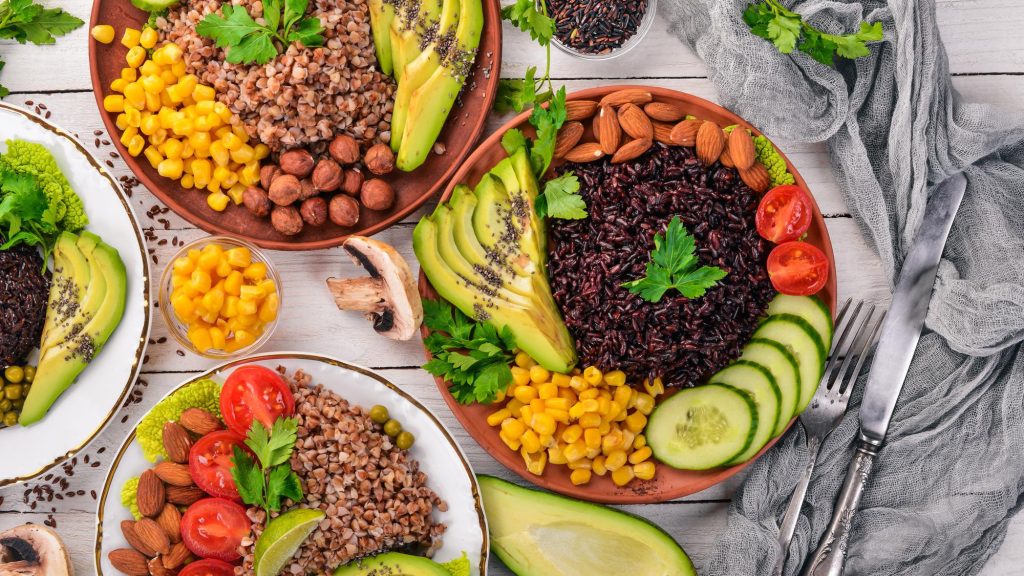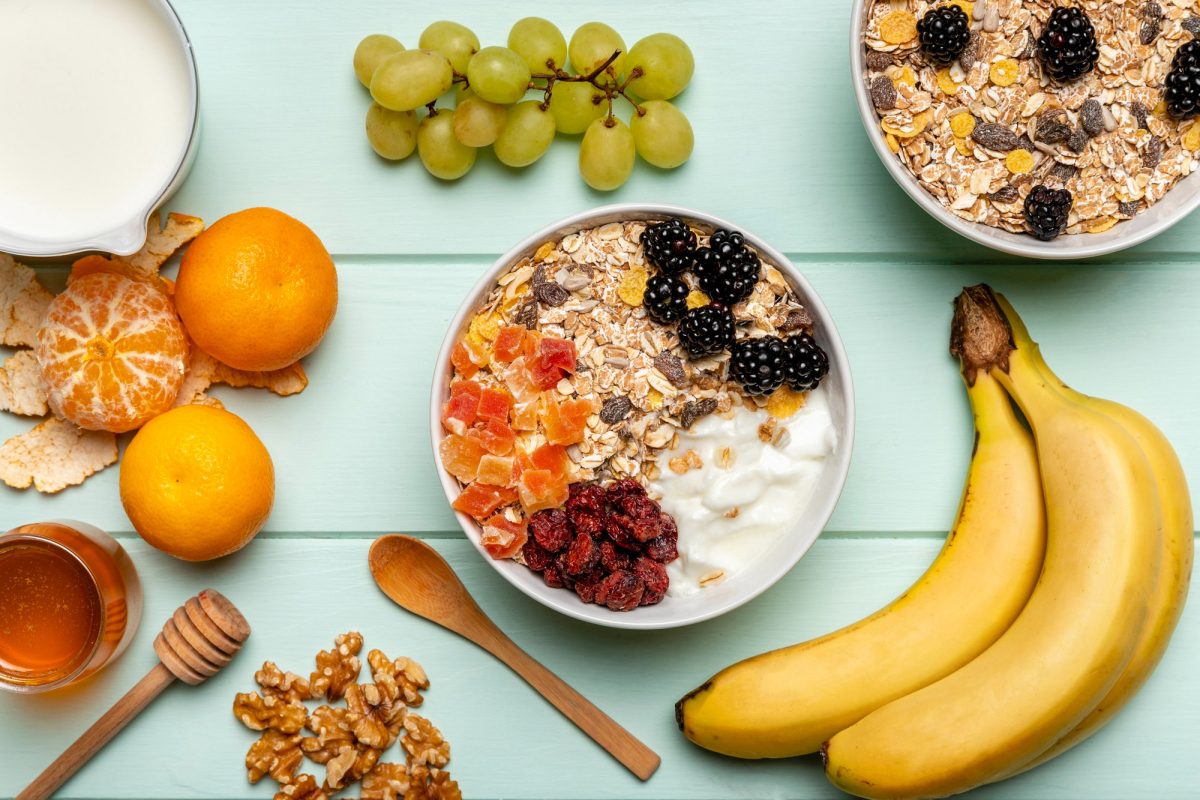Fibre is an essential part of a balanced diet. It’s often overlooked, but it plays a vital role in our digestive system and overall health.
A diet rich in fibre can help prevent chronic diseases such as heart disease, diabetes, and even certain cancers. In this blog, we’ll discuss the importance of fibre in a balanced diet, its benefits, and how to incorporate it into your daily meals.
What is fibre?
Fibre is a type of carbohydrate found in plant-based foods such as fruits, vegetables, whole grains, legumes, nuts, and seeds. Unlike other carbohydrates, fibre cannot be broken down into sugar molecules, and it passes through our digestive system relatively intact. There are two types of fibre – soluble and insoluble. Soluble fibre dissolves in water and forms a gel-like substance in the digestive tract. Insoluble fibre doesn’t dissolve in water, and it adds bulk to our stools, helping to regulate bowel movements.
Benefits of Fiber:
Fibre is essential for maintaining a healthy digestive system. It helps to keep our digestive system running smoothly by regulating bowel movements, preventing constipation, and reducing the risk of colon cancer. It also helps to reduce the risk of other chronic diseases such as heart disease, diabetes, and obesity.
Here are some of the main benefits of including fibre in your diet:
- Improved digestion: Fiber helps to prevent constipation by adding bulk to the stool and promoting regular bowel movements. This can help to prevent digestive problems such as haemorrhoids, diverticulitis, and irritable bowel syndrome.
- Weight management: Fiber can help to reduce the risk of obesity by promoting feelings of fullness and reducing the number of calories consumed. It also helps to regulate blood sugar levels, which can prevent overeating and snacking on high-calorie foods.
- Reduced risk of chronic diseases: A diet rich in fibre has been shown to reduce the risk of chronic diseases such as heart disease, stroke, and certain types of cancer. This is because fibre helps to lower cholesterol levels, regulate blood sugar levels, and reduce inflammation in the body.
- Improved heart health: Fiber helps to reduce the risk of heart disease by lowering cholesterol levels, reducing blood pressure, and reducing inflammation in the body.
- Enhanced gut microbiome: A healthy gut microbiome is crucial for overall health, and fibre helps to promote the growth of beneficial gut bacteria.

How to incorporate fibre into your diet:
The recommended daily intake of fibre for adults is around 25-30 grams per day. However, studies have shown that most people consume only around half this amount.
The good news is that there are many easy ways to incorporate more fibre into your diet. Here are some tips to help you increase your fibre intake:
- Start the day with a high-fibre breakfast: Choose whole-grain cereals, bread, or oatmeal for breakfast, and top with fresh fruit or nuts for an extra boost of fibre.
- Eat plenty of fruits and vegetables: Aim to include at least five servings of fruits and vegetables in your daily diet. Snack on fresh fruits and vegetables throughout the day, and add them to your meals whenever possible.
- Choose whole grains: Choose whole-grain bread, pasta, and rice instead of refined versions. Look for products that contain at least 3 grams of fibre per serving.
- Add legumes to your meals: Legumes such as lentils, chickpeas, and kidney beans are an excellent source of fibre. Add them to soups, stews, salads, and curries.
- Snack on nuts and seeds: Nuts and seeds are an excellent source of fibre and healthy fats. Snack on a handful of almonds, walnuts, or pumpkin seeds for a quick and healthy snack.
- Be mindful of your snacks: Choose snacks that are high in fibre, such as fruit, raw veggies, or whole-grain crackers.
- Don’t forget about fibre supplements: If you struggle to get enough fibre through your diet, consider taking a fibre supplement. However, it’s always best to get your nutrients through whole foods whenever possible.
Takeaway
Fibre is an essential part of a balanced diet, and it’s crucial for maintaining a healthy digestive system, preventing chronic diseases, and promoting overall health. By including more fibre-rich foods in your diet, you can improve your health and reduce the risk of chronic diseases such as heart disease, diabetes, and cancer.
Start by making small changes to your diet, such as choosing whole-grain products and adding more fruits and vegetables to your meals. Over time, these changes can make a big difference in your overall health and well-being.





















Share this article